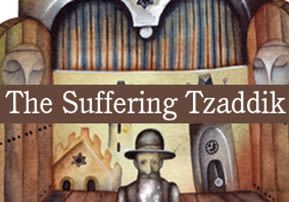
Vayeitzei: The Suffering Tzaddik
They may be destitute, without children, or other similar hardships, Heaven forbid. They dedicate their lives to Hashem and the results are not seen...

One of the most heart-wrenching stories in all of the Torah is in this week’s reading. Jacob returned to the birthplace of his grandfather Abraham to take a wife. By providence, he met his wife-to-be Rachel and, realizing her greatness, asked her father Laban for the right to marry. Laban agreed but only after Jacob worked for her for seven years. On the night of their long-awaited marriage, Laban substituted her older sister Leah to marry Jacob in her stead. Jacob, being aware of Laban’s deceitful nature, had already made up special signs with Rachel in order to prevent such a switch. Rachel realized that if Leah would be found out Leah will be forever disgraced and decided to perform a truly noble act. Rachel forfeited her entire marriage with Jacob and gave the signs to her sister Leah. In the morning, Jacob realized Laban’s trickery and ultimately agreed to work for Laban for another seven years in order to marry Rachel.
The following thoughts about Rachel and Leah are based primarily on the thoughts of my teacher Rabbi Ezriel Tauber:
There are two types of tzaddikim (righteous individuals). One type of tzaddik is endowed with greatness and 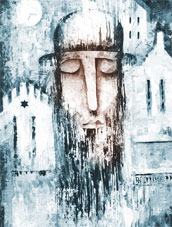 seemingly everything they come in contact with is met with success. They pray and are answered without any major delay. The results of their service to Hashem are fairly much immediate. However, there is a second type of tzaddik whose life doesn’t seem to reflect their level of piety. They may be destitute, without children, or other similar hardships, Heaven forbid. They dedicate their lives to Hashem and the results are not seen. Often, other people second-guess the reverence of such individuals. Even so, ultimately neither is greater. They represent the two types of tzaddikim and two different expressions and paths in their service of Hashem.
seemingly everything they come in contact with is met with success. They pray and are answered without any major delay. The results of their service to Hashem are fairly much immediate. However, there is a second type of tzaddik whose life doesn’t seem to reflect their level of piety. They may be destitute, without children, or other similar hardships, Heaven forbid. They dedicate their lives to Hashem and the results are not seen. Often, other people second-guess the reverence of such individuals. Even so, ultimately neither is greater. They represent the two types of tzaddikim and two different expressions and paths in their service of Hashem.
Leah was from the first group. She married Jacob and had children immediately. Her sons become the fore-bearers of kings and priests. Her success was easily noticed and reflects her spiritual eminence. On the other hand, Rachel represented the opposite type of tzaddik. She gave up her marriage to save her sister from embarrassment and, at the same time, she put her entire future into jeopardy. Even after she married Jacob she waited for years to have children. Hers was a righteousness whose results were not seen. She lived, seemingly, only for the future.
Rachel ultimately gave birth to a son Joseph. Joseph’s life paralleled his mother’s in a fascinating way. The story is well known of the hatred between the brothers and Joseph to the point that they ended up selling him to Egypt. It took many years until the differences were resolved. Picture what that sale must have been like for Joseph. Instead of living out his life with his beloved and saintly father, Joseph became a slave in a foreign land. Surely from the time of his sale his life took on a similar pattern, one of doubt and lack of clarity. He reflected his mother’s holiness and path. Both were the type of tzaddikim that have to wait to see what Hashem has in store for them. For both, they waited for years to see the resolution of their hardships.
But there is one essential element that both Rachel and Joseph shared and is the focal point of this type of tzaddik. To most of us, we would imagine Rachel’s and Joseph’s lives to be a sad expression of apparent Divine neglect. However, just the opposite is true. Since their future is so much out of their control their reliance and connection to Hashem is that much greater. Although they seemingly only have the future, really they only have the present. By having nothing, they have everything. No husband, no children, no family, no future, only Hashem. Falling into His loving hands and knowing with all of their beings that He is providing and directing everything.
This clarity reaches its zenith when, after Joseph revealed himself to his brothers, he appeased them saying that they shouldn’t feel bad since everything was from Hashem. Did Joseph really believe that? Was it an act of necessary reconciliation? No, Joseph understood that this was his path in life, to live with nothing and to have everything. To be a slave and to be more free than anyone around him because he has Hashem.
There are many people who, Heaven forbid, have the challenges of Rachel and Joseph. Their tests can be in finding a spouse, having children, making a livelihood, raising children, or other such formidable and often agonizing difficulties. No one asks for such situations but if they are occur, they can be used as an unique opportunity to live a life of faith and dedication. Hashem, what’s going to be? I have no idea. Hashem, you decide. But right now I have You. Help me live with the clarity of Rachel and Joseph and to connect to you now and let go and rely on You for whatever the future has in store.
May we have strength through our struggles and live with Hashem in the now. And may we also be like Rachel and Joseph who ultimately saw the resolutions of their tribulations. We, too, should merit to see the final resolution of our doubts and hardships with the coming of Mashiach soon.
* * *
Rabbi Dovid Charlop is on the teaching staff of the Neve Tzion Yeshiva in Telzstone, Israel. You can see more of Rabbi Charlop’s articles here.




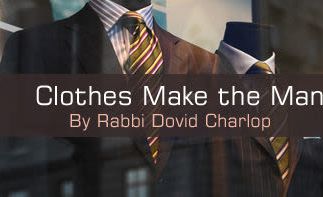


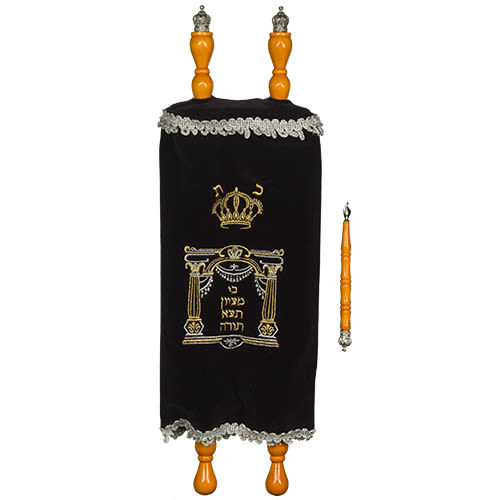


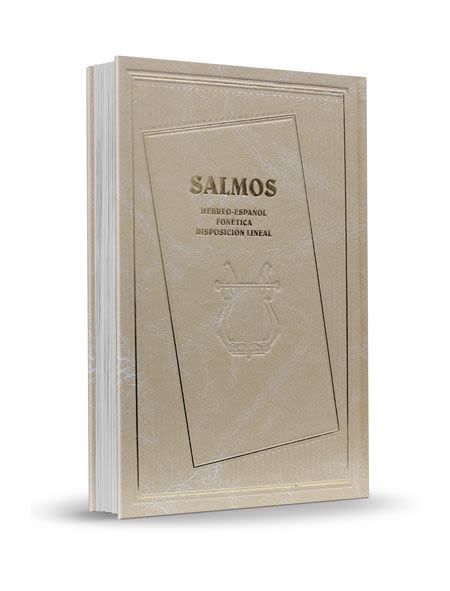
Tell us what you think!
Thank you for your comment!
It will be published after approval by the Editor.